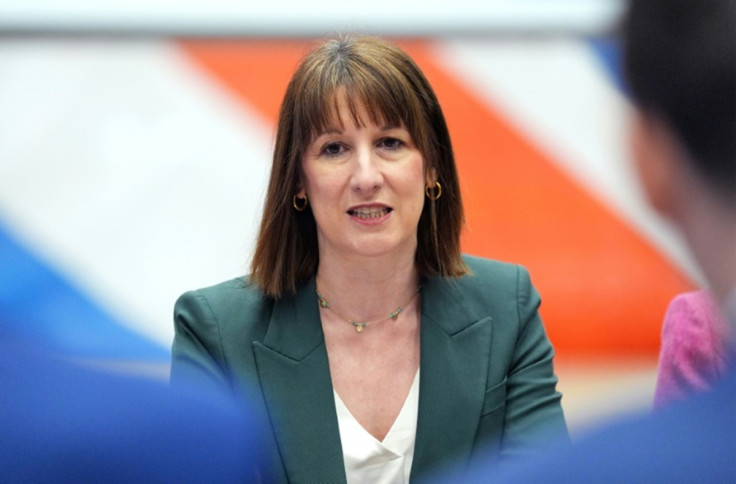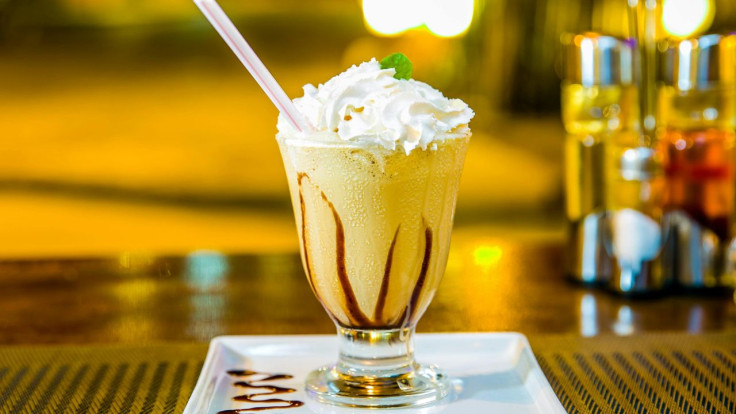What Is The 'Milkshake Tax'? Here's Why Rachel Reeves Is Depending On It To Fill £20bn National Budget Void

KEY POINTS
- Rachel Reeves may remove dairy exemptions from the sugar levy to raise up to £100m toward the UK's £20bn budget gap
- The plan would subject milkshakes and sweetened lattes to the Soft Drinks Industry Levy starting in April 2027
- Critics say the proposal will increase business costs while doing little to meaningfully reduce obesity or close the fiscal gap
Chancellor Rachel Reeves is preparing to remove long-standing dairy exemptions from the UK's sugar levy, creating what critics have labelled a 'milkshake tax', as she seeks new ways to fill the nation's £20bn budget shortfall.
The proposed shift would extend the Soft Drinks Industry Levy, which currently applies to high-sugar drinks like Coca-Cola and Pepsi, to sweetened milkshakes, frappés, flavoured lattes and some dairy alternatives. According to reports, the change could raise up to £100 million annually and would take effect from April 2027.
The move comes shortly after Reeves abandoned her expected plan to raise income tax — a reversal prompted by updated Office for Budget Responsibility analysis that reduced the estimated fiscal gap from £30bn to £20bn.
Why Milkshakes Are Being Pulled Into the Sugar Levy
The sugar tax — formally the Soft Drinks Industry Levy (SDIL) — was introduced in 2018 to pressure manufacturers to reduce sugar content. As background, the levy charges producers 18p per litre on drinks containing 5g of sugar or more per 100ml.

Milk-based drinks were originally exempt due to concerns about calcium intake, but government analysis now suggests these products contribute only 3.5% of young people's calcium consumption, weakening the original justification for shielding them.
By removing the exemption, the government hopes manufacturers will reformulate products just as they did after 2018 — when 89% of soft drinks ended up below the taxable sugar threshold.
Backlash From Businesses and MPs
Opposition to the proposal has been fierce.
Shadow Chancellor Mel Stride criticised the move as punishing businesses that had already reduced sugar responsibly: 'It will see businesses that played by the rules punished — all to save Rachel Reeves's skin'.
Industry bodies have warned that a sudden expansion of the levy could drive up production costs, ultimately raising prices for consumers in an already strained food economy.
Commentary on X has also been scathing, dismissing the measure as ineffective and politically desperate:
This is pathetic. A milkshake tax will hike prices and pile costs on businesses. It’ll do virtually nothing to fill the black hole and the odds of it reducing obesity are less than mine of winning Wimbledon. Classic move from a govt that can’t fix anything so tries to look busy. pic.twitter.com/wn4ARwbCgO
— Annabel Denham (@AnnabelDenham1) November 16, 2025
A milkshake tax? Really? It's getting to the stage of absurdity.
— Cut My Tax (@CutMyTaxUK) November 16, 2025
The tax - part of an increse in taxes on soft drinks - is in any case futile. Gavin Partington of the British Soft Drinks Association pointed out that “more than 7 in 10 soft drinks sold in the UK are already… pic.twitter.com/hGd26C7lWd
Rachel Reeves want to introduce a "milkshake tax"... a tax on milk and yoghurt based drinks to tackle childhood obesity.... even though the sugar tax didnt actually work 🤬🤷♀️ pic.twitter.com/h4Ez493GY6
— 🤍𝕁𝕆🤍 (@jomickane) April 28, 2025
As of now, the Treasury has declined to comment publicly on the proposed expansion.
Can a Milkshake Tax Really Help Close a £20bn Gap?
Economists widely note that £100m is a fraction of the amount needed — but the government appears to be adopting a 'multi-measure' approach after shelving a politically sensitive income tax rise.
That strategy means several small revenue-raising policies must work together to support the fiscal plan. Critics call this a 'patchwork fix,' but supporters argue it spreads the impact fairly and pushes manufacturers toward healthier formulations.
Reeves now faces the dual challenge of stabilising public finances while defending a tax that — despite its modest revenue potential — has become a symbolic flashpoint in the debate over health, fairness and fiscal responsibility.
© Copyright IBTimes 2025. All rights reserved.






















